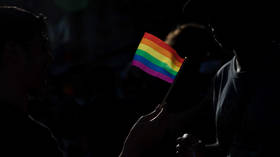Norwegian filmmaker faces prison for stating men cannot be lesbians


Norwegian police are investigating comments by openly lesbian filmmaker and actress Tonje Gjevjon, after she suggested in a Facebook post in October that male-to-female transgender women are still men. Gjevjon now faces up to three years in prison after Norway’s parliament outlawed hate speech against transgender people in 2020.
The filmmaker was speaking out against “men who constantly claim they are lesbians and women,” arguing that such people are “perverse fetishists” who discriminate against real women. Specifically, she singled out Christine Jentoft – a prominent Norwegian trans activist who was born male but now identifies as a “lesbian mother.”
Gjevjon pointed out that under Norway’s new hate speech laws, “heterosexual Lesbian Men” such as Jentoft have been granted the power to report other men and women who do not wish to accept the “bullshit of gender identity” and refuse to “conform to this crazy religious regime.”
“It is just as impossible for men to become lesbians as it is for men to become pregnant,” she insisted, adding that “men are men regardless of their sexual fetishes.”
Speaking to Reduxx last week, Gjevjon explained that her Facebook post was meant to draw attention to Norway’s hate speech laws, which two years ago were amended to include protections for “gender identity and gender expression.”
Those found guilty of making hateful remarks against trans people face up to one year in prison or a fine if the comments were made in private, and a maximum of three years if they were made publicly.
The filmmaker and other opponents of the law have argued that such legislation infringes women’s rights and threatens free speech in the country.